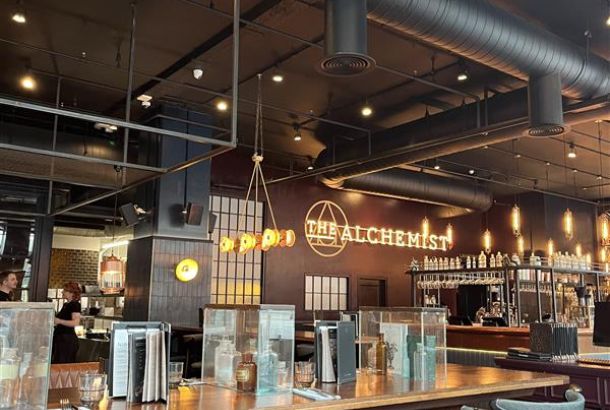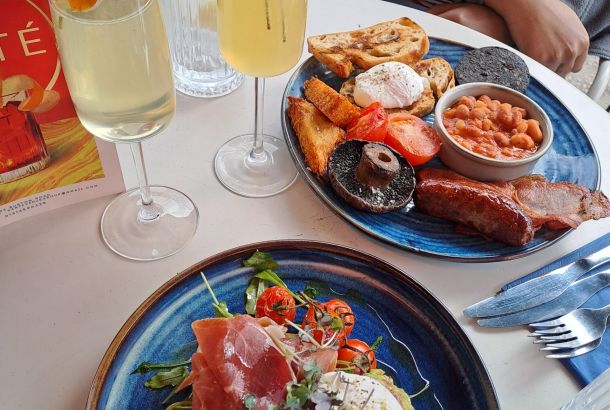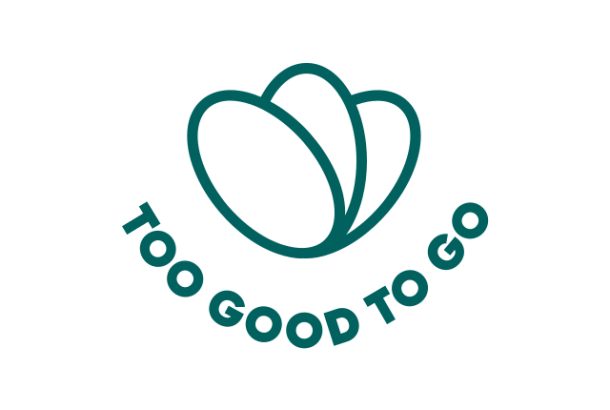Want Not Waste celebrates three years of zero waste

Greenwashing is nothing new. First coined in the 1980s, it’s a useful term for naming and shaming the murky corporate practices that can mask a company’s destructive environmental impact.
Fortunately, Want Not Waste’s commitment to the environment is no such marketing ploy. A student-run, not-for-profit initiative, Want Not Waste is a truly radical organisation, seeking to both acknowledge and break down the barriers to sustainable living, making greener choices ‘accessible and affordable for all’.
Made up of a community of diverse student volunteers from UoM, MMU and RNCM, the organisation sees itself as a ‘hub for social justice’, hoping to open up conversations around sustainability both in person (in the shop), and on their online community and blog.
With permanent fixture in the Academy One building on Oxford Road, a trip to Want Not Waste can be slotted in en route to Fallowfield, without adding to your library commute.
The shop is entirely plastic-free, stocking a wide range of dried goods and cupboard essentials – spices, pulses, grains, and teas. Current highlights include local Chorlton honey – a great potential hay fever antidote – and organically grown British quinoa for 80p per 100 grams.
Want Not Waste also provides ethical alternatives in the form of non-toxic cleaning products, and plastic-free bathroom essentials, such as menstrual cups, homemade soaps, refillable shampoo and conditioners. Whilst broader system change is necessary to truly tackle the climate crisis and problems of wide-scale plastic pollution, making these small, easily implemented swaps can allow for a small sense of agency, at a personal level.
Crucially, Want Not Waste are not just focused on consumption. Slow-stitch repair workshops, TerraCycle schemes, jar swaps and documentary screenings are all some of the ways you can get involved in the zero-waste community without spending a penny. The Want Not Waste blog has plenty of resources to explore, with links to people and other activism sites.
Now celebrating her third birthday, we spoke to Alex of Want Not Waste to find out more.

I’m interested in the journey of Want Not Waste. How it came about? Who started it? Have there been any gaps along the way? Are you are entirely volunteer-run? I can imagine there have been difficult periods, particularly over coronavirus.
Want Not Waste was founded by Lizzy because she believed a zero waste shop would be a brilliant addition to the University of Manchester campus, offering a welcome location to make sustainability accessible to students and people of the wider community. Along with a few dedicated volunteers, she started the project as a pop-up in the Student’s Union, but then expanded to our current location next to Manchester Academy.
The Want Not Waste team has grown tremendously over the years, and we now feel more like a group of friends than a volunteer initiative! This is most likely what made Covid’s troubles so much easier to bear. We were forced to close in March 2020 due to initial restrictions, but we reopened in September after being classified as an essential business. This was encouraging for both customers and volunteers since we were able to maintain a sense of community throughout the many lockdowns. Furthermore, with more free time on our hands, we created more online content, including public events like our fashion and food panel talks (see our YouTube channel), which were a huge success.
This year, we relaxed restrictions in line with government recommendations and were able to resume conducting in-person meetings and socials, which has been very beneficial to team morale, especially since some members had never met in person before! Overall, it’s been an eventful couple of years, but our amazing volunteers are the eco-glue that holds the project together.
What are your best-selling products? And what are some products that people might not be aware that you stock, but you’d like them to know about?
The customer’s food favourite has got to be the pick ‘n’ mix vegan sweets selection! Common staples like oats and fusilli pasta also sell really well too. Something we think that’s highly underrated are our crisps! We love snacking on them at our shop socials…a bit too much perhaps…
In terms of household products, our washing-up liquid and laundry liquid refills are super popular. We’d love to see more people buy our Who Gives A Crap toilet paper, which is created from recycled paper and has double the yield of a standard loo roll.
Lastly, our gift items win overall customers that walk through our doors. The latest addition is flower and mushroom crochet earrings made by Jenny, our very own volunteer! Check out our Instagram page to see her brilliant work.
How do you keep your produce affordable for students? I think lots of students may see sustainability as something that is difficult to achieve or more expensive than heading to Aldi. How does it seem more accessible to students?
There is a common misconception that sustainability is exclusively for individuals with a lot of time, effort, and money, but we want to change that! Because we are a non-profit volunteer project, we sell our items with a very low profit margin. This means that many items are not just less expensive than other eco-shops, but also cheaper than conventional supermarkets, making it incredibly accessible to students on a budget. Our herbs and spices, in particular, are supplied at exceptionally low costs – customers frequently purchase our mixed herbs by the tub-full!
However, a change in mindset may also be required. Some of our products need a larger upfront investment, like our washing up sponges or menstrual pads, but they tend to last a lot longer and be more effective than their plastic counterparts. Despite the initial expenditure, this ends up saving money in the long run. The ‘quality over quantity’ mentality is beneficial for your bank account and for simply establishing ecologically friendly habits.
Around campus, cafes are charging less for customers who bring their own reusable cup, but are there any further changes you’d like to see the university make around sustainability? Do you feel that the university is guilty of greenwashing? Is the goal of the university to be carbon-free by 2038 too late?
This is such an interesting question… as with all things in life, there’s always room for improvement! We acknowledge the positive changes on campus such as the recycling bins in and around the library and SU facilities. However, there is a distinct focus on disposing of waste rather than reducing the amount of waste produced in the first place. For example, a lot of food provisions on campus are sold in plastic packaging which, although more convenient for caterers, adds up to a lot of waste – especially for those daily meal-deal hunters! Additionally, although it’s positive that food outlets are encouraging staff and students to use reusable cups, this puts the onus on the consumer to be environmentally responsible and bypasses the responsibility of the outlets themselves. On-campus businesses should be incentivised by the university to integrate sustainability more broadly, like choosing local suppliers and ensuring more plant-based options are available.
An interesting concept we are beginning to implement in our shop is the Life Cycle Thinking approach. It encourages businesses and individuals to think about every single stage in the life of a product, and how we can make every stage as sustainable as possible. Most people are aware of the “purchase – use – dispose” part of a product’s life, but we don’t often think about the production process, shipment, and then what will happen to it post-disposal. We think that the university needs to prioritise incentivising not just the purchase of “eco-products” such as reusable cups, but promoting genuine, sustainable investment.
On a broader scale, the university should divest from the fossil fuel industry as we all have a vague awareness of how terrible fossil fuels are! The detrimental effect they have on the planet and its people should not be supported in any capacity by the university. This isn’t helped by the high electricity wastage due to out-dated, inefficient systems in many on campus buildings. The technology exists to make on-campus buildings more energy efficient, but the university must prioritise investment in renewable energy and sustainable electrical sources in order for this to happen!
Finally, yeah, 2038 is more than a decade and a half away! I’ll be in my late 30s (eek!) and hope that by then, the university will be more than simply carbon-free! It’s fantastic that there is a goal since it’s a start toward eliciting actual change, but having goals so far in the future doesn’t lend itself to action taking place anytime soon. We want our institution to be bold, prioritise sustainability, and demonstrate that they mean what they say.
Pop into Want Not Waste at Academy 1, Monday-Friday 10-4, or visit their Instagram here.







